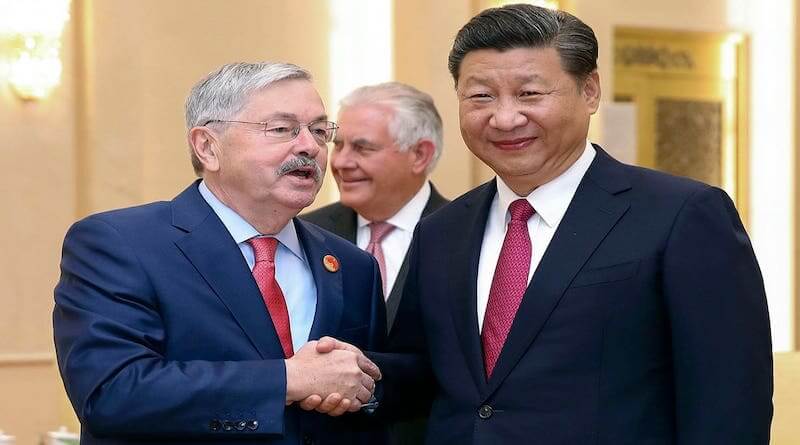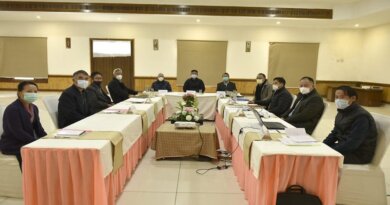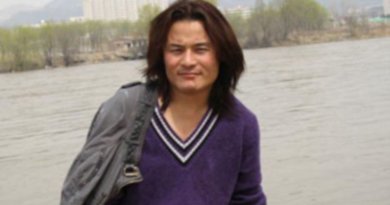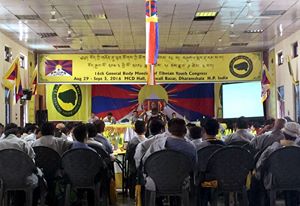US envoy to China embarks on rare visit to Tibet

DHARAMSALA, 21 May: The U.S. Ambassador to China has embarked on a rare visit to Tibet, listed as the least free place on earth after Syria by Freedom House in its 2019 annual review for the fourth year in a row.
The U.S embassy in China has announced that Ambassador Terry Branstad is visiting Tibet for a week over 19- 25 May, making him the first American envoy to visit Tibet since 2015.
Media reports said that the ambassador will investigate religious and cultural freedoms in Tibet during his week-long visit to Tibet.
“This visit is a chance for the ambassador to engage with local leaders to raise long-standing concerns about restrictions on religious freedom and the preservation of Tibetan culture and language,” the spokesperson of the embassy has said in an emailed statement.
The Ambassador was scheduled to visit Qinghai province and the neighbouring Tibet Autonomous Region and his itinerary includes official meetings as well as visits to religious and cultural heritage sites as he will visit, according to an emailed statement of the Embassy spokesperson.
The visit by the U.S. envoy follows the passage of the Reciprocal Access to Tibet Act in December last year, a law that calls for the denial of access to the United States for Chinese officials who design and implement travel restrictions on American journalists, diplomats and citizens from entering Tibet.
Additionally, the U.S and China are now engaged in a bitter trade dispute. While China has condemned the law saying it disregards the facts and interferes in China’s internal affairs, the Chinese Foreign Ministry Spokesperson Lu Kang has entirely blamed the US over the trade negotiation impasse yesterday at a press conference.
While Chinese people can travel to Tibet at will, foreigners are required to obtain a special permit in addition to their Chinese visas.
The US has accused China of “systematically” blocking access to Tibet to diplomats and foreign journalists earlier in March.
“The Chinese government systematically impeded travel to the Tibetan Autonomous Region (TAR) and Tibetan areas outside the TAR for US diplomats and officials, journalists and tourists in 2018,” the US State Department stated in a report to Congress, mandated by the Reciprocal Access to Tibet Act that documented access problems to Tibet.
The report further stated that the total number of international journalists seeking permission to visit Tibetan areas has significantly dropped last year while China has also turned down five of the nine US requests to visit Tibet as well.
The US ambassador was one among those who had their request to visit the second least free country in the world turned down by China but the Chinese Foreign Ministry Spokesperson, when asked about the matter, has reportedly said, “I am not sure what you were referring to when you mentioned that his request was not approved. The visits to certain regions by foreign diplomats stationed in China, including the US ambassador, must be arranged after consulting with relevant departments.”
The communist regime has audaciously claimed that Tibet is open to everyone and that the restrictions were necessary to protect the safety of the tourists owing to the high altitude of Tibet.
On Ambassador Terry Branstad’s ongoing trip to Tibet, Lu Kang has said that the ambassador can see for himself the enormous changes that have taken place in Tibet’s socio-economic development and local people’s work and life since the peaceful liberation of Tibet over 60 years ago,
“China hopes Ambassador Branstad will visit Tibet with an objective attitude and the respect to facts and make his own unbiased observation, especially in terms of cultural preservation, religious belief and historical inheritance in Tibet. We hope the US side will come to a fact-based conclusion rather than being misled or disturbed by long-standing hearsay and rumours,” he added.





